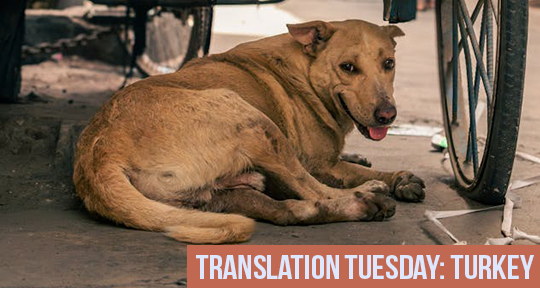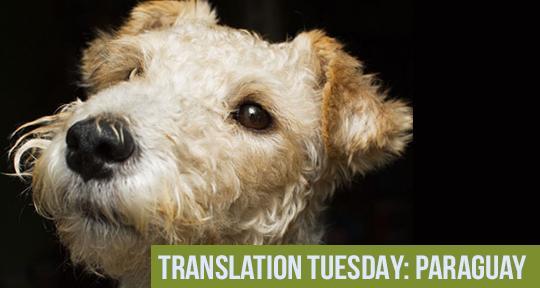Fındık, the titular character of Sait Faik Abasıyanık‘s short story, is the kind of dog you can find anywhere: one of those common strays who are nonetheless elevated by virtue of their sheer adorableness, endearing themselves to the local residents. He’s also a perfect litmus test for human character, exposing those who would scold a dog for merely approaching them. Despite such treatment, Fındık remains trusting and friendly. That is, until he encounters the Poison Man, a self-important garbage collector who is charged with culling the village’s canine population. Translated from the Turkish by Will Washburn, “Fındık” examines themes of moral responsibility, human-animal bonds, and the rationalizations people use to justify cruelty toward the downtrodden—but also, what spurs them to defy those rationalizations.
Fındık is pals with everyone in our village, young and old, who doesn’t have too high an opinion of themselves. Colored like a tabby cat, Fındık (his name means “hazelnut”) is the bastard offspring of a wolf-dog and a hunting dog. As a love-child, he ought to be beautiful, but in fact he isn’t. If you don’t give him a pat on the head when he approaches you, wagging his big thick tail and blinking his brown eyes, then you’re a strange one indeed. To reject an animal that approaches you with such a need for affection, you’d have to have never been in love in your life, never cared about anything, never known what it means to have a soft heart. You might hold that such people don’t exist. And yet how many times, with my own eyes, have I seen Fındık approach people—not just for a piece of bread, but in need of a simple pat—and be shooed off. So I’m unable to change my opinion of humanity.
It’s a well-known fact that, with the onset of summer, dogs catch a nasty microbial illness from each other. Around that time, the city busies itself with killing off every dog in sight. People hide all the dogs in their area. The municipality pays one-and-a-half lira per dog, and a bunch of dog-killers set off on their rounds.
In our village, we call this person the “Poison Man.” You should see this Poison Man: he’s an odd one. To be sure, not everyone who does that job is abnormal. But becoming a killer, an Angel of Death, inevitably alters a person’s condition, their character, their gaze, their walk. Or maybe it doesn’t alter them; maybe we only think it does. You know that play, So It Is (If You Think So)? Well, if we think the Poison Man is abnormal—then so he is. He might as well be the Düsseldorf Monster. That’s the fellow who used to carry a gleaming metal chain with a knife attached to one end, which he’d use to ensnare little children, take them behind the bushes, and kill them.



